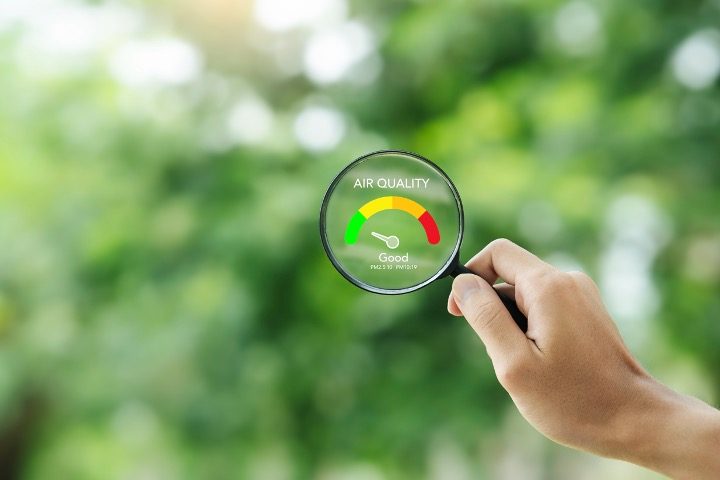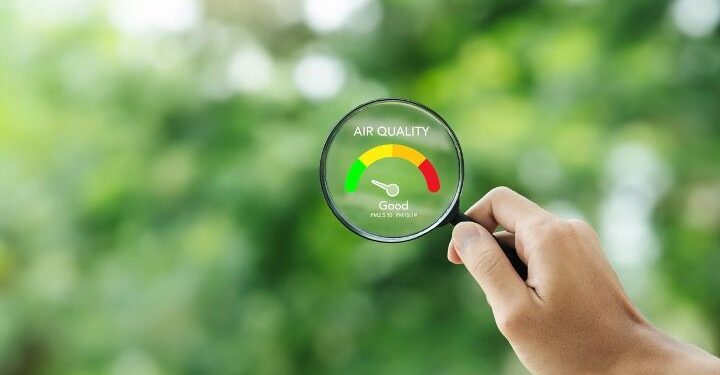
In a development sure to discombobulate those who trust the United Nations’ experts to save the planet, it turns out that one UN agency’s anti-pollution regulations have inadvertently counteracted another agency’s anti-global-warming rules, at least according to one study.
Published Thursday in the journal Communications Earth & Environment, the study concludes that the International Maritime Organization’s (IMO) 2020 regulations forcing a reduction in ships’ sulfur emissions allowed more sunlight to reach the Earth’s surface, causing a significant increase in alleged global warming.
The IMO required vessels engaged in international shipping to reduce the sulfur content of their fuel by a whopping 86 percent. The UN agency estimated the regulation would cause a 77-percent reduction in annual sulfur oxide emissions, which it claimed would lead to “reductions in stroke, asthma, lung cancer, cardiovascular and pulmonary diseases,” as well as “acid rain and ocean acidification.”
As with the UN’s climate regulations, the IMO’s sulfur dictates were not cheap to implement. The Boston Consulting Group, a management-consulting firm, forecast in 2019 that compliance costs would be “significant,” with the “cumulative additional fuel cost for container liners” likely to reach “nearly $30 billion through 2030.”
Moreover, while the regulations succeeded in their stated intention of shrinking sulfur emissions, the abrupt change “created an inadvertent geoengineering termination shock with global impact,” reads the study. With the skies suddenly cleaner, more sunlight got through, and ocean-surface temperatures rose by 0.2 watts per square meter, an amount “equivalent in magnitude to 80% of the measured increase in planetary heat uptake since 2020.”
Lead author Tianle Yuan of the University of Maryland and the National Aeronautics and Space Administration’s (NASA) Goddard Space Flight Center, with which all but one of the authors is associated, told The Guardian those extra 0.2 watts over the oceans were “a big number, and it happened in one year, so it’s a big shock to the system.”
As a result, “we will experience about double the warming rate compared to the long-term average” since 1880, he added.
According to the left-wing Guardian, which filed its story under “Climate crisis”:
The scientists used relatively simple climate models to estimate how much this would drive up average global temperatures at the surface of the Earth, finding a rise of about 0.16C over seven years. This is a large rise and the same margin by which 2023 beat the temperature record compared with the previous hottest year.
Other scientists who believe that “hottest year” bunk don’t think the sulfur reduction explains all, or even most, of it, primarily because they expect that more “sophisticated” climate models — which, of course, have also repeatedly failed to comport with reality — will produce different guesstimates.
Wrote The Guardian:
“[Pollution particles] are one of the largest uncertainties in the climate system, and pretty hard to measure,” said Dr. Zeke Hausfather, at analysts Carbon Brief. He said the new analysis did a good job of using satellite data to estimate the change in trapped heat after the pollution cut, but he disagreed on how that translated into a temperature rise. Hausfather’s estimate of the temperature rise due to the pollution cut was 0.05C over 30 years.
“The [pollution cut] is certainly a contributing factor to the recent warmth, but it only goes a small way toward explaining the 0.3C, 0.4C, and 0.5C margins of monthly records set in the second half of 2023,” he said.
If the new study’s authors are correct, however, it would suggest that expensive, top-down, pollution-reduction programs are at odds with similarly expensive, top-down, global-warming-reduction programs — a conundrum noted by the UN’s Intergovernmental Panel on Climate Change (IPCC) in 2021.
“It’s this Catch-22,” Patricia Quinn, an atmospheric chemist at the National Oceanic and Atmospheric Administration (NOAA), told Reuters last year. “We want to clean up our air for air quality purposes but, by doing that, we’re increasing warming.”
But never fear: these same “experts” have a solution. For its story claiming pollution reduction in China was also responsible for global warming, Reuters interviewed 12 scientists on the matter, all of whom “said there was no suggestion among climate experts that the world should let-up [sic] on fighting air pollution…. Instead they stressed the need for more aggressive action to cut emissions of climate-warming greenhouse gases.”
On top of that, they’re considering undoing the “damage” caused by the removal of pollutants from the atmosphere by seeding clouds over the ocean with aerosols to make them brighter and, therefore, better sunlight reflectors, a process known as marine cloud brightening (MCB). The new study, in fact, claims that its findings support the notion; but, it cautions, “such methods … have uncertain and complex additional consequences besides the intended short-term cooling effect.”
“We should definitely do research on this, because it’s a tool for situations where we really want to cool down the Earth temporarily,” like an emergency brake, Yuan told The Guardian. “But this is not going to be a long-term solution, because it doesn’t address the root cause of global warming,” i.e., fossil fuels.
A better idea would be to reconsider the whole “climate crisis” mentality and realize that the Earth goes through cyclical climate changes totally unrelated to human activity. Man’s attempts to reverse them will inevitably fail, but may cause untold misery in the process. After all, who could have done anything to prevent the most plausible cause of last year’s allegedly record heat: a massive underwater volcanic eruption?

































 Reaction & Commentary
Reaction & Commentary
















